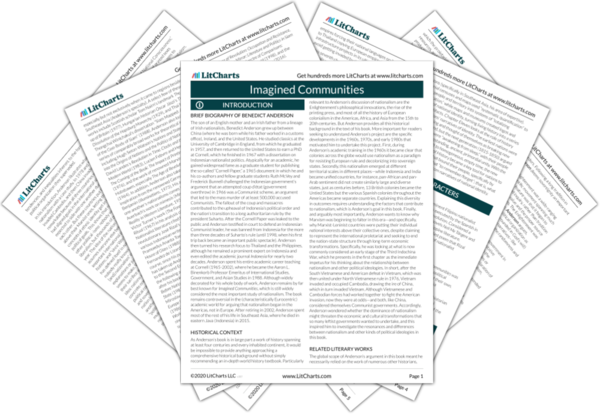LitCharts assigns a color and icon to each theme in Imagined Communities, which you can use to track the themes throughout the work.
The Nation as Imagined Community
Language, Publishing, and Identity
Centralization, Technology, and Power
Piracy and the Uses of History
